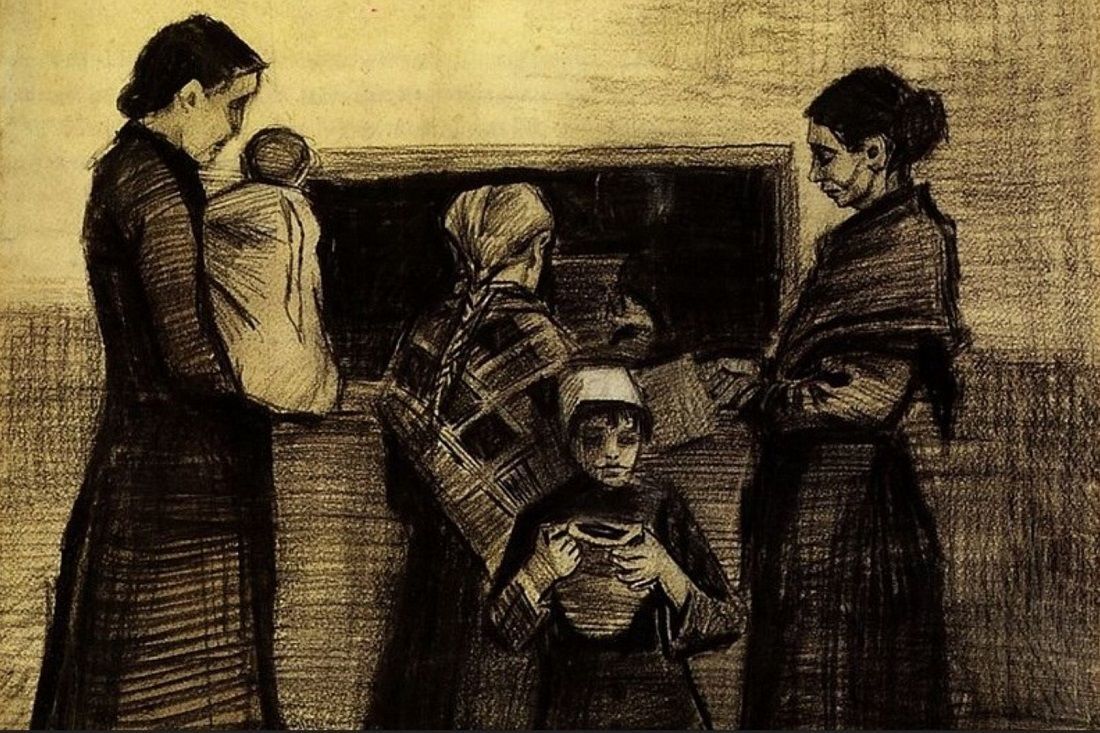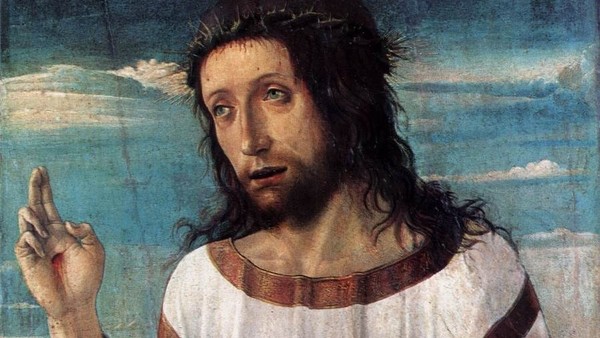David Graeber’s Debt: The First 5000 Years (2011) is a strange, brilliant, frustrating, and perhaps indispensable book. It remains controversial among economists, of course, if only out of the resentment some of them feel at the very notion that an anthropologist might presume to intrude on their putative area of expertise, and to do so on so vast a historical scale.
It continues, moreover, to strain the credulity of those who cannot imagine how anyone could express such doubts regarding the practical inevitability of a monetary economic system, or could seriously propose anarchism as a real alternative to the injustices of capitalism. And, of course, there are those who not unreasonably accuse Graeber of offering a grandly buoyant critique of the contradictions and cruelties of capitalist culture without the ballast of a few proposed solutions.
But, exotic as Graeber’s book was as an intervention in economic analysis, at its heart lay a rather ordinary observation, one that was made just as grandly a couple years later by Thomas Piketty in his magisterial treatise Capital in the Twenty-First Century (2013). It is, in fact, also acknowledged by economic thinkers of every conceivable ideological persuasion, from Marx to Mises: that in many ways the difference between the poor and the rich is simply the difference between debtors and creditors, and that systems of credit are, for the most part, designed to preserve and exploit this difference.
The logic of this is not difficult to grasp. Once the principle of interest—especially compound interest—is recognized as a legitimate means of encouraging lending, it requires very little ingenuity indeed to create a system in which one man’s poverty is another’s source of wealth, and in which it is very much in the interest of creditors to see that the poor remain poor.
Invariably, the destitute will often find themselves in desperate need of liquid capital; and, just as invariably, they will not have anything of sufficient value to convert into cash or to use as security on any sort of substantial loan. Hence, they will have no alternative but to consent to whatever rates and rules of interest their creditors see fit to impose. Especially predatory creditors, moreover—as any quick survey of the practices of credit card companies today will reveal—can arrange the terms of credit in such a way that the initial debt will be quickly magnified beyond any reasonable proportion, rendering the debtor perpetually incapable of discharging the financial burden under which he or she labors, and so able to do little more than make regular payments on the principal’s interest (which, needless to say, grows more rapidly than the debtor can pay it off).
Before long, the principal has itself become almost sacred in its unapproachable exaltation, a mystery sealed within in an inaccessible sanctuary, in the service of an unappeasable god. It truly is an infallible formula. A few draconian penalties written into credit agreements, a few legal but unreasonably immense shifts in interest rates, a cynical liberality with regard to the amount of credit extended to persons too much in need to calculate the inevitable destructive consequences of accepting credit—and all at once the poverty of the unfortunate becomes an overflowing wellspring of revenues for the wealthy. Especially profitable for such creditors are the catastrophic medical emergencies that so frequently reduce the poor to virtual slavery, and that the American system especially—with a Darwinian prudence almost majestic in its stern, barbaric indifference to the appeals of pity or morality alike—refuses to alleviate.
But, really, the legal apparatus of almost all developed nations are more than willing to allow the credit markets to reap their harvests from their lavishly seeded fields. No realm of economic activity is more casually and ineffectually regulated in most countries. In capitalist societies, the poor too—like everything else—can become a commodity; they are a natural resource that can be tirelessly exploited by the rapacious without ever being exhausted. For the poor are with you always.
A recognition of the fundamental indecency of using interest to enslave the needy appears at least as early in human history as the Law of Moses. Hence its inflexible prohibitions upon all practices of usury within the community of the children of Israel (Ex 22:25; Lev 25: 36-37; Deut 23:19-20), and hence the ancient Jewish condemnation of interest (Ps 15:5; Ez 18:17). Hence also the care extended in the Law to ensure that neither Israelites nor their neighbors be reduced to a state of absolute penury (Ex 12:49; 22:21-22; Lev 19:9-10; 23:22; 25:35-38; Deut 15:1-11).
Moreover, the Law not only prohibited interest on loans, but mandated that every seventh year should be a Sabbatical, a shmita, a fallow year, during which debts between Israelites were to be remitted; and then went even further in imposing the Sabbath of Sabbath-Years, the Year of Jubilee, in which all debts were excused and all slaves granted their liberty, so that everyone might begin again, as it were, with a clear ledger. In this way, the difference between creditors and debtors could be (at least, for a time) erased, and a kind of equitable balance restored. At the same time, needless to say, the unremitting denunciation of those who exploit the poor or ignore their plight is a radiant leitmotif running through the proclamations of the prophets of Israel (Isa 3:13-15; 5:8; 10:1-2; Jer 5:27-28: Amos 4:1; etc.).
So it should be unsurprising to learn that a very great many of Christ’s teachings concerned debtors and creditors, and the legal coercion of the former by the latter, and the need for debt relief; but somehow we do find it surprising—when, of course, we notice. As a rule, however, it is rare that we do notice, in part because we often fail to recognize the social and legal practices to which his parables and moral exhortations so often referred, and in part because our traditions have so successfully “spiritualized” the texts—both through translation and through habits of interpretation—that the economic and political provocations they contain are scarcely imaginable to us at all.
This is understandable, of course. But one does not need to be a scholar of Judaea and Galilee in late antiquity to notice how often Jesus speaks of trials, of officers dragging the insolvent to jail, of men bound by or imprisoned for undischarged debts, of unmerciful creditors, of suits brought before judges to secure a coat or cloak, of the unfortunate legally despoiled by the fortunate.
In point of fact, perhaps the principal function of the courts of the world in which Christ lived and preached was to settle claims made upon debtors by their creditors (almost always in favor of the latter). And it was a world of exorbitant debt. The Galilean peasantry to whom Christ first brought his good tidings had suffered for years under the taxes exacted by Herod the Great; many whose taxes had fallen into arrears had been reduced from freeholders to bound tenants by expropriations of their already meager estates, or by securing loans they could not repay with their lands and goods. The tax collectors, the creditors, and the courts had long conspired to make rural peoples and the disenfranchised of the towns and cities into captives of their debts. And at times, of course, the only way those debts could be resolved was by the sale of debtor families into slavery.
Moreover, the restraint that the Sabbatical cycle had imposed on predatory lending practices had been effectively nullified by the legal convention of the “prosboul,” by which a creditor could place outstanding promissory notes in escrow with the courts, along with an authorization to collect payments (and retain fees), thus allowing that creditor to evade the requirements of the Law. It was a practice that assured that credit would continue to be available; but it was also one that made possible the sort of unrelieved exploitations of the indigent through permanent indebtedness that the Mosaic Code had sought with such extraordinary compassion to prevent.
One sees in the Epistle of James something of the resentment the poor had come to feel toward those who subjected them to the constant terror of being robbed of what little substance they possessed by the suborned machinery of “justice”: “Do not the rich oppress you, and haul you into law courts as well? Do they not blaspheme the good name that has been invoked upon you?” (Jas 2:6-7). And Christ’s words leave one in no doubt regarding his indignation at pitiless creditors: in the parable of the unmerciful servant (Matt 18:21-35); in his furious denunciations of the hypocrites among the scribes and pharisees who, while making a show of piety, betrayed the mercy of the Law by “devouring” the homes of widows whose husbands had died insolvent (Matthew 23:14; Mark 12:40); in the parable of the unrighteous steward, where the exaggerated debts falsely accounted against the poor are called the “Mammon of injustice,” and the unscrupulous steward who allows the debtors to reduce those charges to their fair amounts is praised for his wisdom, even though he acts from self-interest (Luke 16:1-13).
In fact, Christ’s teachings on these matters could scarcely be more uncompromising in their hostility to the prudential concerns that had led to the creation of the prosboul, or more recklessly anarchic in their disregard of the economic consequences of rejecting those concerns. He tells his listeners not only to give freely to all who might ask—or, for that matter, might seize—anything from them (Luke 6:30), but also to lend to those in need without any desire for return (Luke 6:33-34). For those who seek the Kingdom of God, every year is the Sabbatical year, every year is the Jubilee.
To the debtors of his time, on the other hand, Christ’s advice was singularly and unspectacularly pragmatic: to try to settle suits out of court, even if one must do so on the way to judgment, on the road or in the street, before a judge can remand one to the court’s officers for incarceration (Matt 5:25-26; Luke 12:58). Do not refuse the plaintiff his plaint; in fact, give him more than he asks (Matt 5:40).
Again, though, as I have said, we rarely notice how persistent a theme the issue of indebtedness is in Christ’s teachings. And again, as I have also said, conventions of translation and habits of thought are chiefly to blame. In the actual text of the Sermon on the Mount, for instance, at least in the original Greek, an ominously archetypal figure, identified simply as “the wicked man” (ὁ πονηρός), makes a brief appearance. He is almost certainly meant to be understood as a depiction of the sort of avaricious, disingenuous, and rapacious man who routinely abuses, deceives, defrauds, and plunders the poor. It is he who ensnares men with false promises wrapped in a haze of preposterously extravagant oaths (Matt 5:37), and he whom Christ forbids his followers to “oppose by force” (Matt 5:39), and he from whom one should request deliverance whenever one comes before God in prayer (Matt 6:13). And yet in most translations—and, more generally, in Christian consciousness—he is all but invisible.
In the first instance, he is usually mistaken for the devil (quite illogically), while in the latter two he is altogether displaced by an abstraction, “evil,” which has no real connection to the original Greek at all. This is a pity. And, really, it is somewhat absurd. Christian tradition has produced few developments more bizarre, for instance, than the transformation of the petitionary phrases of the Lord’s Prayer in Christian thinking—and in Christian translations of scripture—into a series of supplications for absolution of sins, protection against spiritual temptation, and immunity from the threat of “evil.” They are nothing of the kind. They are, quite explicitly, requests for (in order): adequate nourishment, debt relief, avoidance of arraignment before the courts, and rescue from the depredations of powerful but unprincipled men. The prayer as a whole is a prayer for the poor—and for the poor only. To see this, one need only look at the text as it appears in the Gospel:
Πάτερ ἡμῶν ὁ ἐν τοῖς οὐρανοῖς·
ἁγιασθήτω τὸ ὄνομά σου·
ἐλθέτω ἡ βασιλεία σου·
γενηθήτω τὸ θέλημά σου, ὡς ἐν οὐρανῷ καὶ ἐπὶ γῆς·
τὸν ἄρτον ἡμῶν τὸν ἐπιούσιον δὸς ἡμῖν σήμερον·
καὶ ἄφες ἡμῖν τὰ ὀφειλήματα ἡμῶν, ὡς καὶ ἡμεῖς ἀφήκαμεν τοῖς ὀφειλέταις ἡμῶν·
καὶ μὴ εἰσενέγκῃς ἡμᾶς εἰς πειρασμόν, ἀλλὰ ῥῦσαι ἡμᾶς ἀπὸ τοῦ πονηροῦ.
Most Christians who recite the Lord’s Prayer in English—or what they take to be the Lord’s Prayer—could be pardoned for failing to imagine what is at stake in these lines. The standard rendering, after all, quite successfully dissolves the hard, mundane, practical substance of those petitions into vague, ethereal, painless pieties.
And, admittedly, the familiar translation of the prayer’s first half is sound enough; Christ did instruct his listeners to address God as their Father in “the heavens,” to hallow his name, to entreat the Kingdom’s advent, and to wish for God’s will to be accomplished here below as there above. But, the second half it reduces to something less than a shadow of the original. “Daily bread,” admittedly, is almost accurate enough, though the phrase would better be rendered “bread adequate for the day’s needs”; but I doubt most of us quite hear the note of desperation in that phrase “τὸν ἄρτον ἡμῶν τὸν ἐπιούσιον δὸς ἡμῖν σήμερον”—the very real uncertainty, suffered every day, concerning whether today one will have enough food to survive.
The next lines, moreover, the standard rendering comes nowhere near representing correctly. Simply said, ὀφειλήματα are not “transgressions,” but “debts”; nor are they “debts” in a metaphorical sense—they are not sins that require some penance or recompense on out part—but are in fact quite literally the crushing burden of financial obligations under which the poor labor and suffer and die, to the advantage of the most merciless of their creditors.
And the imperative ἄφες is a plea not for forgiveness in the moral sense, but for remission of those obligations. As for the word πειρασμός, it certainly ought not to be read as “temptation” (as though it could be applied to a roving eye, a longing for chocolate, or an inclination toward embezzlement); it properly means “trial,” and here almost certainly refers to literal trial in court under a suit brought by a creditor. And the closing petition’s final invocation of “the evil man”—not “evil” in the abstract, nor even the “evil one” in the sense of the devil—is almost certainly a reference to a creditor of an especially heartless and unscrupulous kind.
Perhaps, then, a more faithful rendering of those petitions would be something along the lines of:
Give us our bread today, in a quantity sufficient for the whole of the day. And grant us relief from our debts, to the very degree that we grant relief to those who are indebted to us. And do not bring us to court for trial, but rather rescue us from the wicked man.
It is easy to understand, obviously, how it is that over the centuries the Lord’s Prayer should have come to be something else in the Christian imagination—something less specific, less concrete, more comprehensive, more unrelated to any specific economic conditions or any particular station in society.
It could scarcely have served as a model of Christian supplication for all the baptized if its social provocations had remained too transparent, or if it had remained too obviously an epitome of Christ’s “preferential option” for the destitute and disenfranchised. After all, the consciences of the rich require protection too. How else could the banker who has just foreclosed on a family home recite the Lord’s Prayer in church without being made to feel uncomfortable?
Even so, it was originally, and remains, a prayer for the poor—a prayer, that is, for the poor alone to pray. Down the centuries, wealthy Christians have prayed it as well, of course, or at least have prayed a rough simulacrum of it. God bless them for their faithfulness. But, to be honest, it was never meant for them. Quite—one has to be honest here—the opposite.


